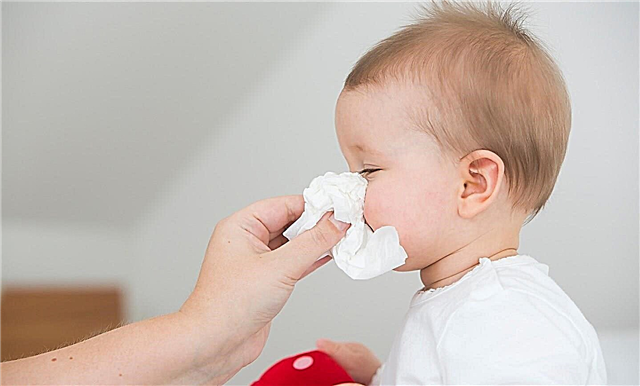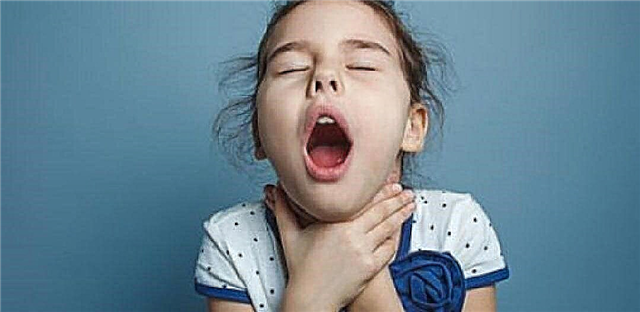
Doctors often prescribe topical remedies that target harmful microorganisms when sore throat, perspiration, or dry cough occurs. Among the many candies, tablets and lozenges with an antiseptic effect, one can single out a drug called "Faringosept".
It is popular in adults with pharyngitis and various inflammatory processes in the mouth, but can such a remedy be prescribed for children? Will this drug harm the child's body, in what doses it is advised to use it in children and what analogues can be replaced if the child refuses the medicine or is allergic to it?

Release form
Faringosept is a product of the renowned Indian pharmaceutical company Ranbaxy and comes in only one form, which is a lozenge. They have cocoa and vanilla flavors, a round shape, smooth surface and slightly beveled edges. Such a drug has a brown-yellow color, although there may be small light blotches in the tablet structure.
Faringosept with lemon flavor is produced separately. The difference between such tablets, in addition to taste, is the presence of an embossed letter "L" on the surface of one of the sides of the drug. The tablets are sold in blisters of 10 pieces, and one or two blisters are in one carton.

Composition
Both types of tablets - both ordinary and lemon - contain ambazone monohydrate as the main ingredient due to which the drug has medicinal properties. Its dosage is 10 mg per tablet. For a dense structure, polyvidone k30, gum arabic and magnesium stearate are added to the drug, and for a sweet taste, the tablets contain sucrose, milk sugar, cocoa and vanillin (in lemon "Faringosept" it is replaced with lemon flavoring).

Operating principle
The active substance "Faringosept" has an antimicrobial effect, which is to slow down the growth of harmful bacteria (this effect is called bacteriostatic). The drug affects various microorganisms, among which there are pneumococci, streptococci and many gram-negative bacteria that can infect the mucous membrane of the pharynx and oral cavity.
The tablet placed in the mouth also stimulates the secretion of saliva, which, thanks to the natural substance lysozyme, additionally affects harmful microbes and activates the healing of damaged areas of the mucous membrane. In addition, due to resorption, perspiration and a feeling of dryness in the throat are eliminated.

The antiseptic effect of the drug develops within half an hour from the beginning of the tablet resorption, and a sufficient therapeutic effect is noted three to four days after the start of the intake. In this case, the agent only affects the bacteria that are on the mucous membrane of the oropharynx.
Unlike antibiotics, the medicine that has entered the lower parts of the digestive tract does not affect the composition of the normal intestinal flora, that is, dysbiosis does not develop after treatment with Faringosept.

Indications
"Faringosept" is effective in inflammatory and infectious processes that have arisen in the oral cavity and pharynx. The medicine is prescribed for:
- pharyngitis;
- sore throat;
- tracheitis;
- laryngitis;
- gingivitis;
- stomatitis.

The tablets can also be used for prophylaxis, for example, if a patient has a tooth pulled out or tonsils are removed. In such situations, the active substance "Faringosept" will prevent complications that can cause disease-causing bacteria.
From what age is it allowed to take?
In the paper annotation, which is attached to the tablets, it is noted that "Faringosept" is not used in the treatment of children under three years of age. This is due to the peculiarities of taking solid drugs by young children. A child who is not yet 3 years old will not be able to dissolve the medication for a long time and, most likely, will swallow the pill, so the desired therapeutic effect will not be achieved. That is why the medication is contraindicated for one-year-old babies and children aged 2 years.

Contraindications
As the manufacturer notes, treatment with "Faringosept" is prohibited only if one or more components of the tablets are intolerant. However, since there is a lot of sucrose in the tablets, it is also not recommended to give such a medication to patients with diabetes mellitus. In addition, due to the presence in the composition of milk sugar, "Faringosept" can not be used even with a lack of an enzyme called lactase or lactose intolerance.

Side effects
The use of "Faringosept" can provoke an allergic reaction, for example, cause the appearance of a skin rash or itching. In such a situation, treatment is immediately stopped and the pediatrician is consulted to select an analogue that will replace such pills. As a rule, the doctor replaces Faringosept with other lozenges or lozenges, but may also prescribe a topical spray or solution.
Instructions for use
"Faringosept" is given to the child, offering to put the pill in the mouth and keep it there until the medicine completely dissolves under the influence of saliva. For the drug's effect to be most effective, it is used after meals - after about 15-30 minutes. When the patient has completely absorbed the pill, you can neither eat nor drink water for two to three hours after that. So the active substances of the medication will continue to affect the mucous membrane of the oropharynx for as long as possible.
A single dose of "Faringosept" is one tablet. For children aged 3-7 years, it is given three times a day, and for patients over seven years of age, the frequency of use can be increased up to 4-5 times. The duration of treatment is determined by the doctor, but usually "Faringosept" is given to children within 3-5 days. Longer use must be agreed with the pediatrician. If after 2-3 days of application there is no visible improvement, the child should also be examined by a specialist.


Overdose
Since "Faringosept" acts mainly locally, there have been no cases of overdose of such a drug previously. The medication is considered safe and is used even in pregnant women and during breastfeeding. If the child accidentally swallows several tablets, it is recommended to provoke vomiting or gastric lavage.
If the general condition worsens, a doctor's examination is necessary.
Interaction with other drugs
There is no data on the incompatibility of "Faringosept" with any drugs that are taken by mouth or injected. As for other topical agents, there should be an interval of at least 2 hours between their use and the use of Faringosept.

Terms of sale
"Faringosept" refers to non-prescription drugs, therefore it is freely sold in pharmacies. The average price of 10 tablets is 120-140 rubles, and for a package with 20 tablets you need to pay from 150 to 190 rubles.
Storage conditions
At home, the drug should be placed in a place where high humidity or temperatures above +25 degrees will not act on it. In addition, in this place, the medication should be inaccessible to children. Shelf life of "Faringosept" is 4 years and is marked on the blister. If it has expired, it is unacceptable to use such a medicine.

Reviews
More than 90% of reviews of "Faringosept" are positive. In them, parents confirm the high effectiveness of tablets for pharyngitis, sore throat and other diseases of the throat or oral cavity. The advantages of the medication include its pleasant taste, a minimal list of contraindications, rapid absorption in the mouth, an affordable price and the possibility of using it in children.
According to mothers, "Faringosept" is generally well tolerated. Only in isolated cases did the pills provoke an allergic reaction, which is why they had to resort to analogues. Also, some children do not like the taste of the tablets, and sometimes they do not notice the effect of the drug (this is mainly the case in advanced cases).

Analogs
If it becomes necessary to replace "Faringosept" with a drug with a similar effect, the doctor may suggest:
- "Hexoral tabs". As part of this medication, a local anesthetic benzocaine is added to the antiseptic agent (chlorhexidine). These tablets can be given from 4 years of age. Separately, the drug "Hexoral Tabs Classic" is produced, which acts through a combination of two substances with antimicrobial properties. This medication is allowed from the age of six. In addition, there are Hexoral Tabs Extra tablets. In their composition, lidocaine is added to two components with antiseptic properties. This remedy is prescribed for patients over 12 years old.
- "Lizobakt". This drug affects the condition of the mucous membrane, harmful bacteria and viruses thanks to lysozyme supplemented with pyridoxine. He, like "Faringosept", is prescribed to children from the age of three.
- "Hexalysis". These lozenges contain biclotymol, lysozyme and enoxolone. Thanks to such substances, the drug destroys bacteria, reduces painful sensations and activates the protective function of the mucous membrane. The medication is allowed for children over 6 years old.


- "Suprima-ENT". The antimicrobial effect of such a drug is due to the presence of amylmetacresol and dichlorobenzyl alcohol in the tablets. In childhood, the drug is used from 6 years old.
- "Septolet". These green lozenges contain 5 active substances at once to help eliminate pathogens and pain. These are thymol, menthol and benzalkonium chloride, as well as eucalyptus and peppermint oils. The drug is prescribed for children over 4 years old. Septolete Neo is produced separately (they act by cetylpyrinium chloride) and Septolete D (they contain mannitol and maltitol instead of sugar). Such lozenges are also used from 4 years old. In addition, children over 6 years of age can be given Septolete Plus, the action of which is due to the combination of cetylpyrinium chloride and benzocaine.
- "Grammidin for children". These tablets have antimicrobial properties thanks to gramicidin C, as well as an antiseptic to cetylpyrinium chloride. The medication is used for various diseases of the oropharynx from the age of four.
- "Imudon". These mint tablets contain lysates of various microorganisms, including lactobacilli, corynebacteria, streptococci and candida. They are able to stimulate local immunity, therefore they are in demand in the inflammatory process in the mouth and throat. The drug is prescribed for children 3 years of age and older.
In addition to drugs in solid form, instead of Faringosept, the doctor may prescribe a liquid medicine with an antiseptic effect, for example, Stomatidin, Maxicold Lor, Tantum Verde, Miramistin, Oralsept, Ingalipt, Hexasprey "Or" Yoks ".
Such solutions, sprays and aerosols help with stomatitis, gingivitis, sore throat and other indications, but they have different active ingredients, so the choice of any of these agents as an analogue of "Faringosept" should be carried out by a doctor.


For information on how to treat a child's throat, see the next video.



